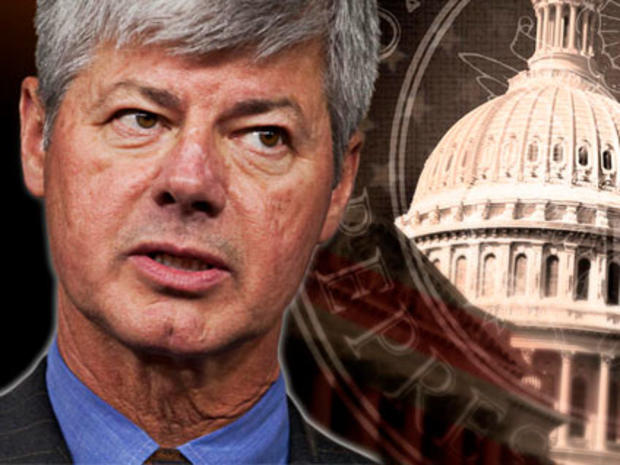Stupak's Retirement Gives Democrats Another Open Seat to Defend
By Anthony Salvanto and Mark Gersh
Open seats often play a crucial role deciding control of the House in tight elections. Rep. Bart Stupak's retirement
adds another to small but important list of open seats in marginal or GOP-leaning districts that the Democrats must now defend without the power of incumbency.
It also reveals part of a larger story: the current Democratic majority owes much of its size to the party's recent ability to win some conservative and center-right districts, usually with more conservative-leaning and center-right Democratic candidates. (Many of these members, you'll recall, were spotlighted during the health care battles, recently and notably by Stupak and the compromise on abortion, and the Democratic Blue Dogs' fiscal concerns over the public option.)
Because the power of incumbency is generally so strong in congressional elections (voters usually dislike Congress as a whole but like their own congressman), representatives such as Stupak win even while districts otherwise shift partisanship or is competitive in other races.
But retirements of such members make it harder for Democrats to hold the seats - and their majority - because the district is marginal or leans right.
In 2008, Stupak was easily re-elected with 65 percent of the vote while President Obama just narrowly carried the district 50 percent to 48 percent. Now without Stupak on the ballot, based simply on partisan voting the district should be competitive between two new candidates.
Democrats will now have at least 16 open seats to defend in the fall and most profile as competitive districts. And at least ten are in either marginal or downright hostile territory for Dems; districts that either John McCain carried in '08 or were marginally for Mr. Obama.
These districts, opening because of retirements or holders seeking higher office, leave the Democrats vulnerable.
| Retiring/Leaving | State | District | Obama 2008% |
| Stupak | Mich. | 1 | 50% |
| Berry | Ariz. | 1 | 38% |
| Snyder | Ariz. | 2 | 44% |
| Ellsworth | Ind. | 8 | 47% |
| Melancon | La. | 3 | 37% |
| Moore | Kan. | 3 | 51% |
| Gordon | Tenn. | 6 | 37% |
| Tanner | Tenn. | 8 | 43% |
| Baird | Wash. | 3 | 52% |
| Sestak | Pa. | 7 | 56% |
And up in New England, Paul Hodes' leaving the NH-2 to run for higher office and Bill Delahunt's retirement from MA-10 offer some potential for turnovers, too.
Anthony Salvanto is CBS News Elections Director. Mark Gersh is Washington Director, National Committee for an Effective Congress, and a CBS News Consultant.

